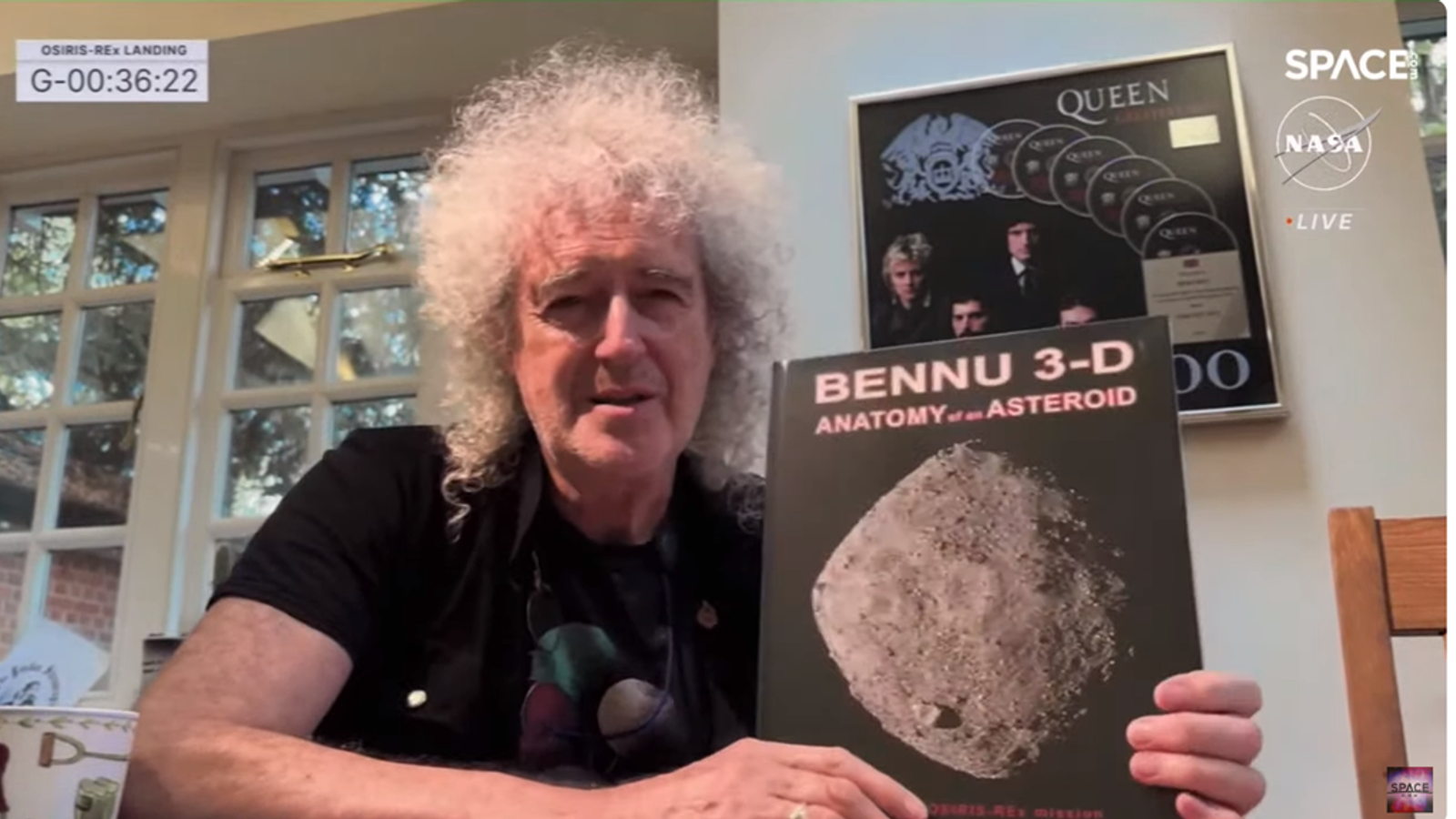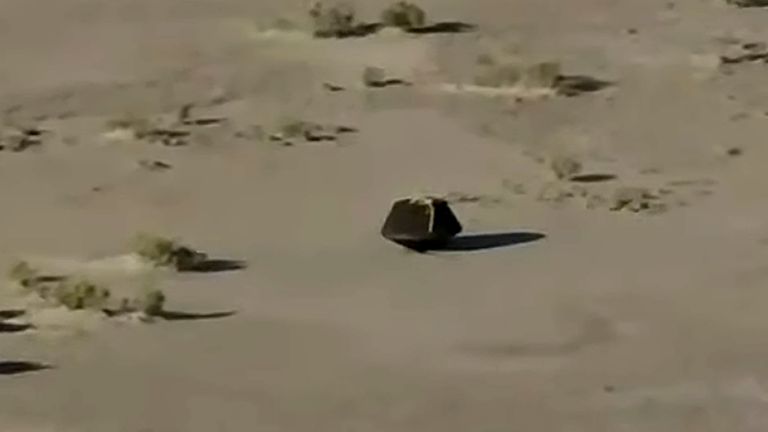Sir Brian May has said he is “immensely proud” to be part of the team who successfully collected NASA’s first asteroid samples from deep space.
A capsule containing around 250g of rocks and dust collected from asteroid Bennu touched down in the Utah desert near Salt Lake City on Sunday.
Earlier in the day, the Osiris-Rex spacecraft released the sample capsule around 63,000 miles out during a flyby of Earth.
Queen guitarist and astrophysicist Sir Brian aided the mission by helping to identify where Osiris-Rex could grab a sample from the asteroid.
Read more:
NASA probe returns with rock samples from asteroid – as it happened
Capsule contained around 250g of rocks and dust collected from asteroid
In a message of support shown on NASA TV, Sir Brian said: “Hello Nasa folks, space fans, asteroid aficionados, this is Brian May of Queen but also I’m immensely proud to be a team member of Osiris-Rex.
“I can’t be with you today, I wish I could, I’m rehearsing for a Queen tour, but my heart is there with you as this precious sample is recovered.
“Happy sample return day and congratulations to all who worked so incredibly hard on this mission.”
Read more:
Closest-ever photo of massive asteroid Bennu
NASA taking ‘concrete action’ to explore UFOs
The rocker particularly praised his “dear friend” Dante Lauretta, who he created the book Bennu 3-D: Anatomy of an Asteroid with, which is a 3D atlas of the asteroid.
The sample is the US space agency’s first mission to collect a sample from an asteroid and the first by any agency since 2020.
A quarter of the sample will be given to a group of more than 200 people from 38 globally distributed institutions, including a team of scientists from the University of Manchester and the Natural History Museum.
Asteroid Bennu is a 4.5-billion-year-old remnant of our early solar system and scientists believe it can help shed light on how planets formed and evolved.
Experts say the carbon-rich, near-Earth asteroid serves as a time capsule from the earliest history of the solar system.

